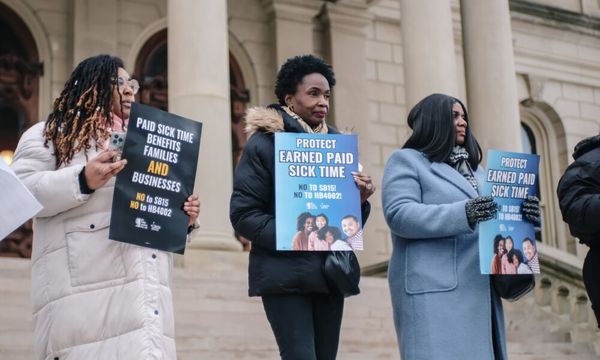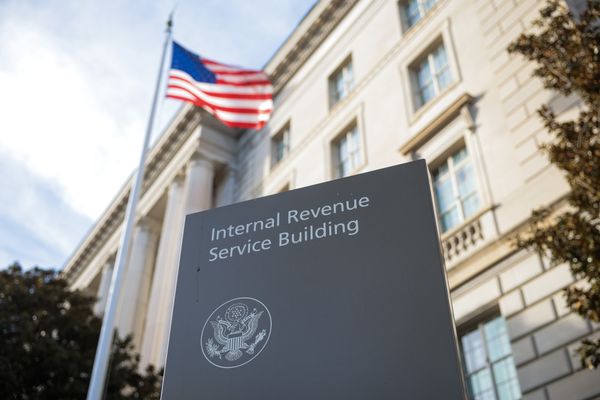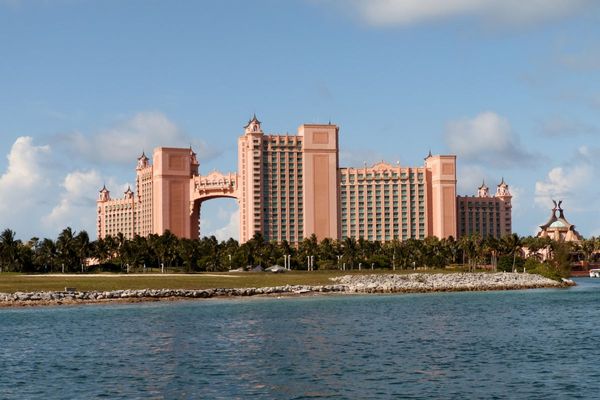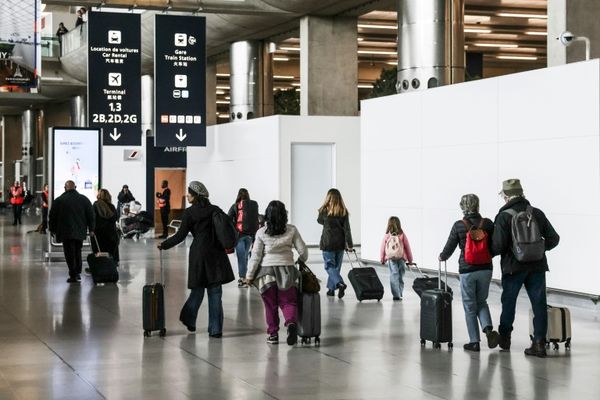
Nikki McKenzie has seen a lot of loss and trauma in her remote Western Australian home of Derby and says few people there have been untouched by suicide.
“We have one of the highest rates of suicide in the world and where are the services? It’s frustrating and heartbreaking,” McKenzie said.
That lack of culturally safe and equitable care inspired her to make the move thousands of kilometres from her home in Western Australia’s Kimberley region to attend university and become the region’s first Aboriginal psychologist.
“We didn’t even have access to a psychologist in Derby. We’ve got a drive-in and drive-out service from Broome once a month,” the 36-year-old university student said.
McKenzie was in Canberra with more than 50 other Indigenous women from around the country brought together by Oxfam’s Straight Talk program to inspire the next generation of “change makers” and leaders.
She said being surrounded by other First Nations women had been “good for the soul”.
“I consider myself a young, future leader and being amongst all Aboriginal women – it’s really inspiring to be around them,” the Nyikina, Jabirr Jabirr, Yawuru and Bardi woman said.
McKenzie never pictured herself being able to study before she was selected as one of five applicants for the leading Indigenous psychologist Dr Tracy Westerman’s scholarship program.
“I thought I wasn’t smart enough, but programs such as this really do break it down for us and say, hey you can do this and you can do that,” she said.
“We could be the prime minister of Australia if we wanted to. Anything is possible.”
She said coming together to take part in the program’s workshops, forums and yarning was important in building community leadership.
“We might be from different sides of the country, different language groups, but when you really get down to it all we’re experiencing the same fights, we’re experiencing the same struggles and we are all coming together,” she said.
“I’m getting a whole bunch of mentors here to be able to become that future leader and be able to create change in our communities.”
Anne Taylor was another of the program’s participants. The Meriam woman from the Torres Strait Islands has worked in various government departments in Queensland for decades, hoping to create change for her people. She runs programs for vulnerable and at risk young people and children.
Taylor said working in the sector can be difficult but rewarding and said the experience of being with so many Indigenous women all working towards solutions was uplifting.
“It’s so empowering being amongst all these deadly Black women doing deadly things in their own community, and it’s inspiring me,” Taylor said.
“Women want change. We want more for our community and more for our mob.”
Since the program began in 2009, more than 900 Indigenous women have gone on to succeed in leadership roles in community and beyond, with the minister for Indigenous Australians, Linda Burney, among them.
Michelle Deshong, the lead facilitator of Straight Talk, said the program was about encouraging Indigenous women to succeed in politics and leadership roles with the goal to empower women wherever they live.
“Some of them have ended up running for parliament, local elections, including Linda Burney, Vonda Malone – the first woman to become the mayor of the Torres Strait – and Greens senator Lidia Thorpe,” she said.
She said the program was not just about women breaking down barriers and entering the spaces they were once barred from, it was also about empowering women in their local communities.
“Some people aren’t interested in being a politician,” the Kuku Yalanji woman from Queensland said.
“It’s also about pushing women to take up roles where they’re decision-makers and change-makers and they are leading the way in many cases,” she said.
She said this year’s most diverse parliament, with the highest number of First Nations women, was testament to the strength and passion of Indigenous women.
“This just shows you that once the pathways are created, Aboriginal and Torres Strait Islander women are obviously very ready to just get in and get it done.”
• In Australia, support is available at Lifeline is 13 11 14 and Beyond Blue on 1300 22 4636. In the UK and Ireland, Samaritans can be contacted on freephone 116 123, or email jo@samaritans.org or jo@samaritans.ie. In the US, the National Suicide Prevention Lifeline is at 800-273-8255 or chat for support. You can also text HOME to 741741 to connect with a crisis text line counselor. Other international helplines can be found at befrienders.org







